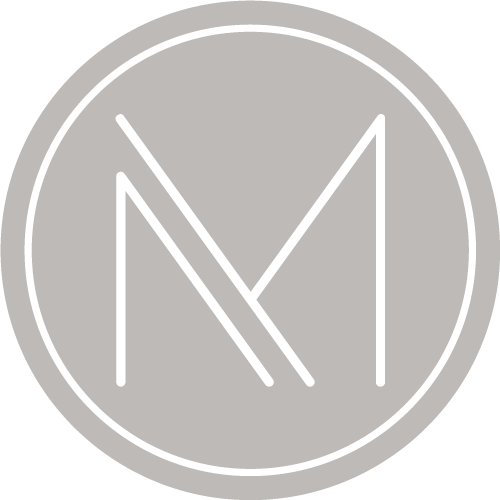-
Selecting Design Templates
After selecting a semi-custom design template, modifying it with the client's information, and sending an electronic proof for approval.
-
Making Handcraft Plates
Verifying the design content for accuracy and then creating the printing plate.
-
Selecting Materials
Choosing paper and accessory materials based on the design specifications.
-
Mixing Ink
Mixing colors according to the chosen design file colors.
-
Inking
Evenly applying the mixed colors to the inking plate.
-
Printing
Installing the layout onto the printing press and adjusting the press's pressure.
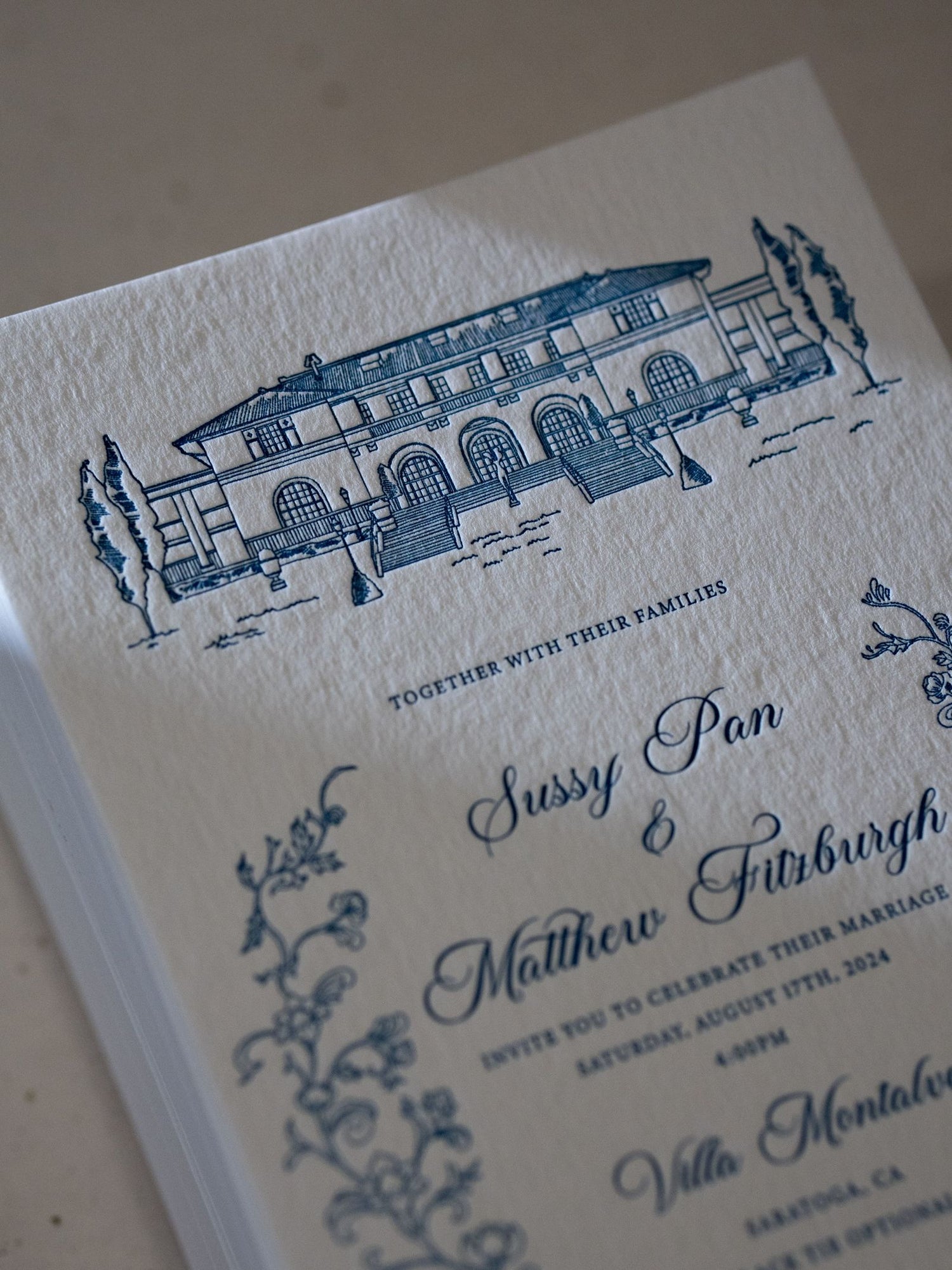
Letterpress
A printing technique where raised plates are inked and then pressed onto paper, leaving an impression on the surface. The printed text or graphics feature sharp, clear lines and vibrant colors, enhancing the texture and uniqueness of the printed material.
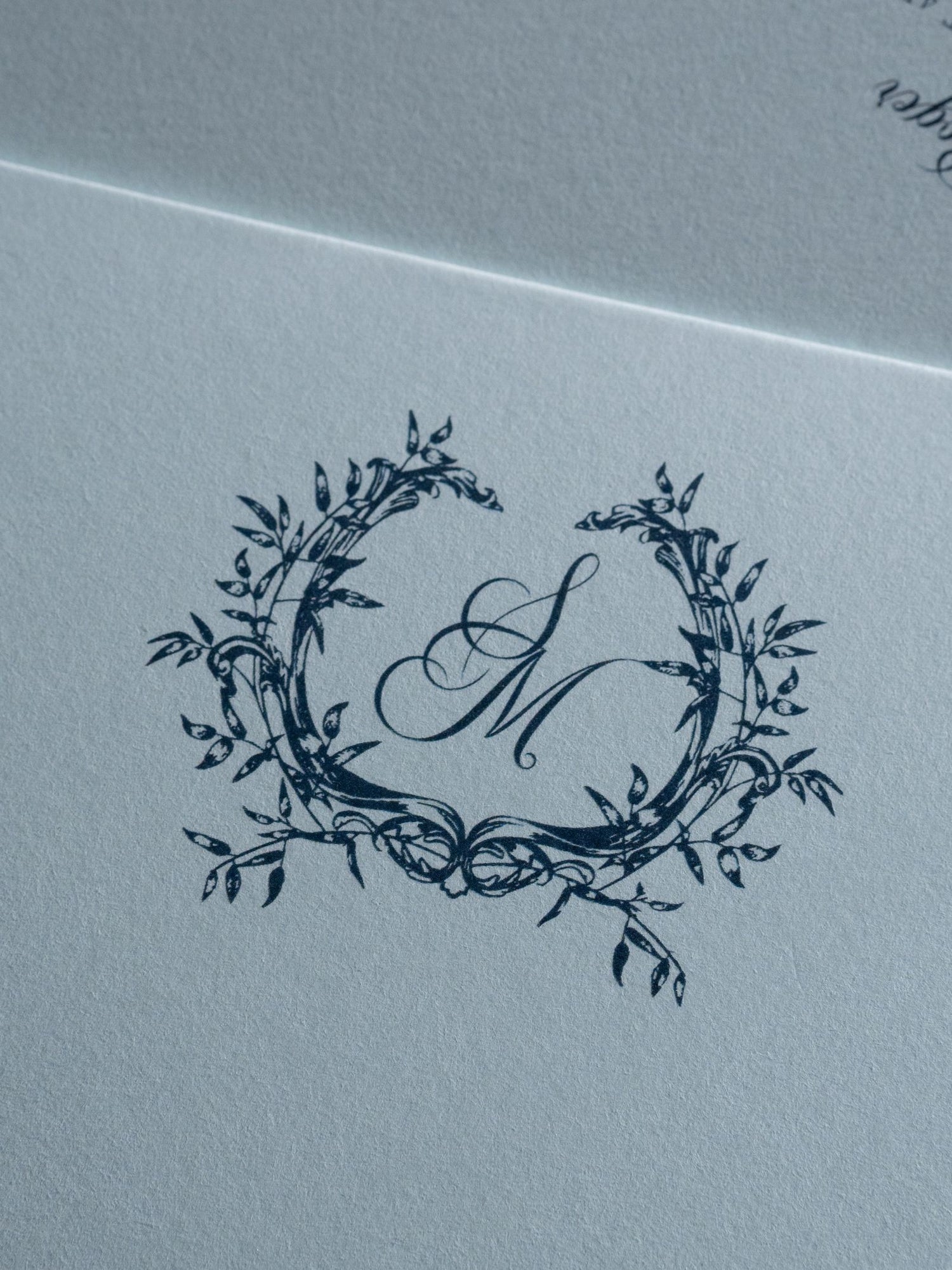
Digital Printing
A modern method that directly transfers digital files onto surfaces using inkjet or laser printers. It doesn't need printing plates, allowing for fast production and high-quality, customizable results on various materials.
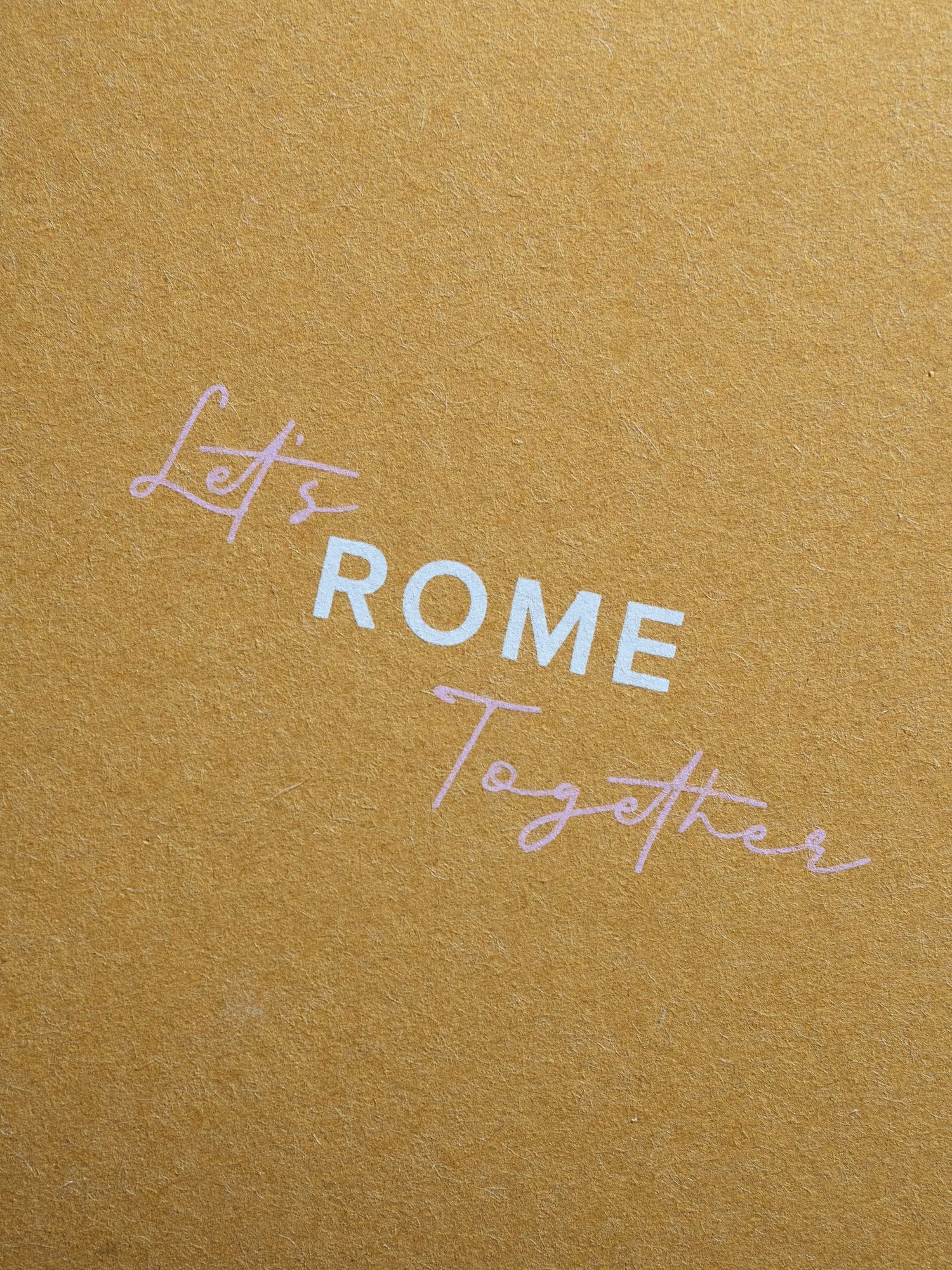
Screen Printing
A printing method where ink is directly applied onto various materials through a mesh screen, resulting in vibrant colors and high adaptability.
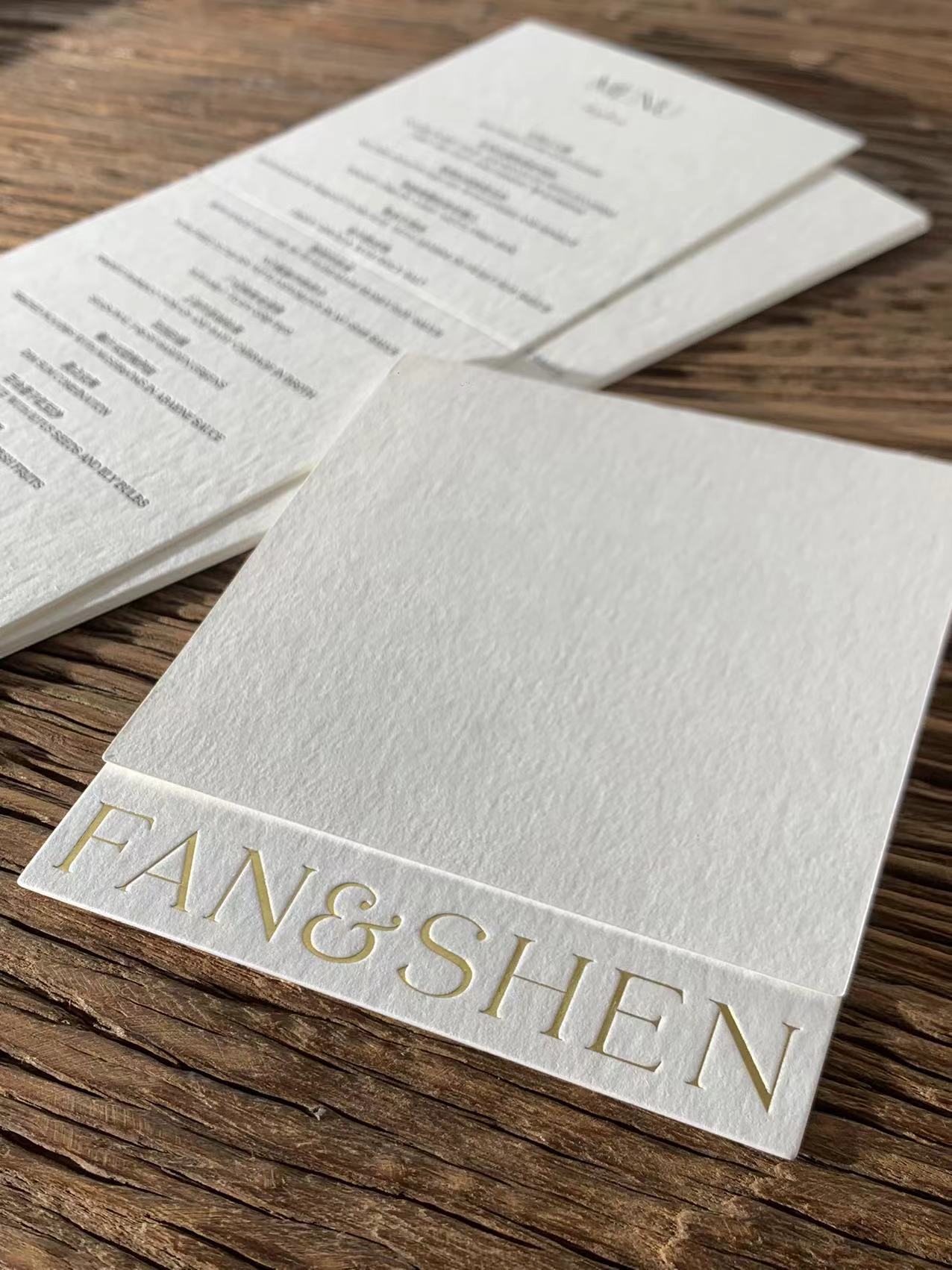
Foil Stamping
A technique where metallic foil is pressed onto paper or leather using heat, creating a luxurious and elegant effect. This process enhances the visual appeal and adds a touch of sophistication to printed materials, making them stand out.
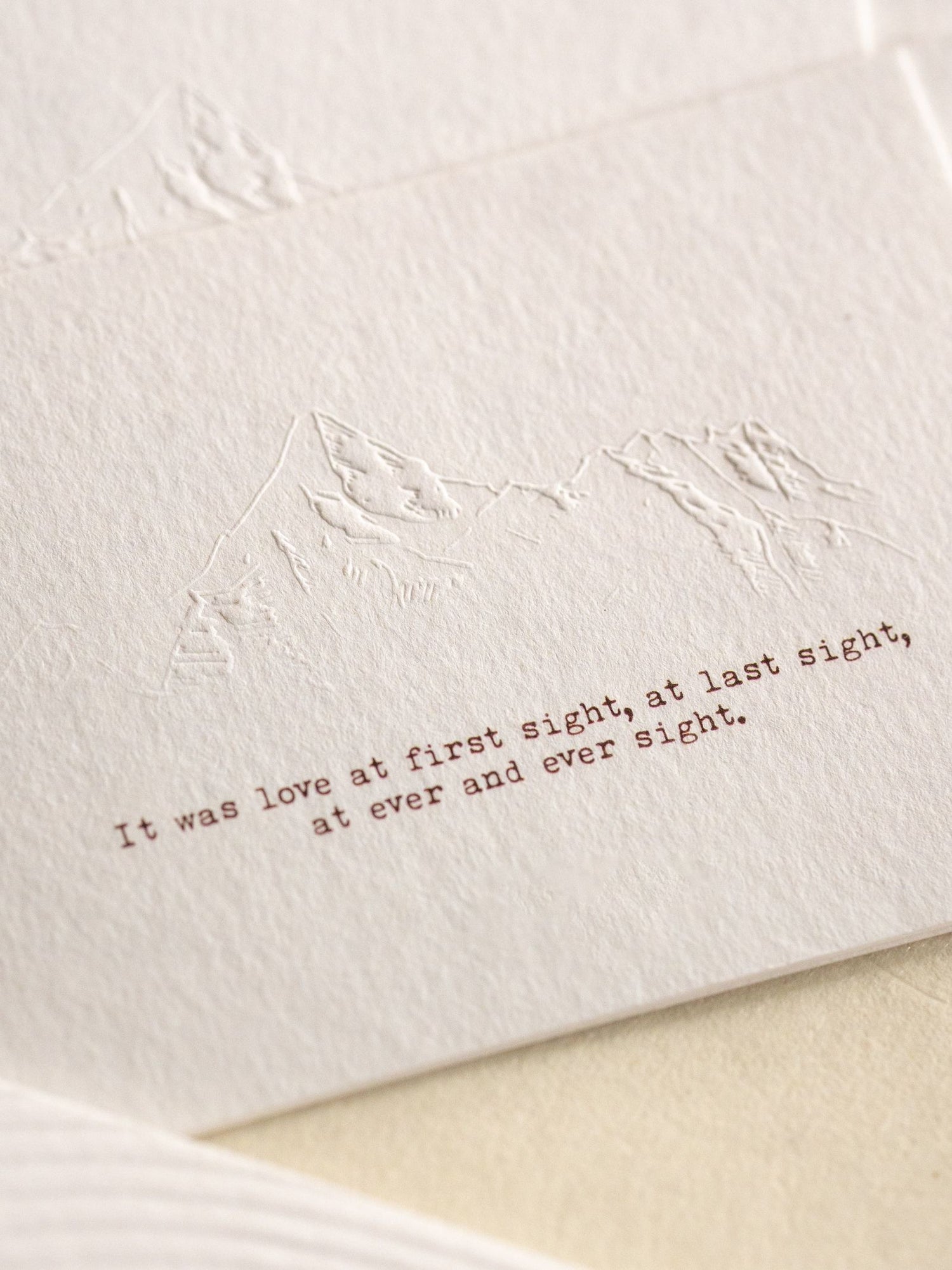
Embossing
A process that creates a raised design on the surface of the paper through the application of pressure. The raised effect adds depth and texture to the material, giving it a tactile quality that enhances its overall aesthetic.
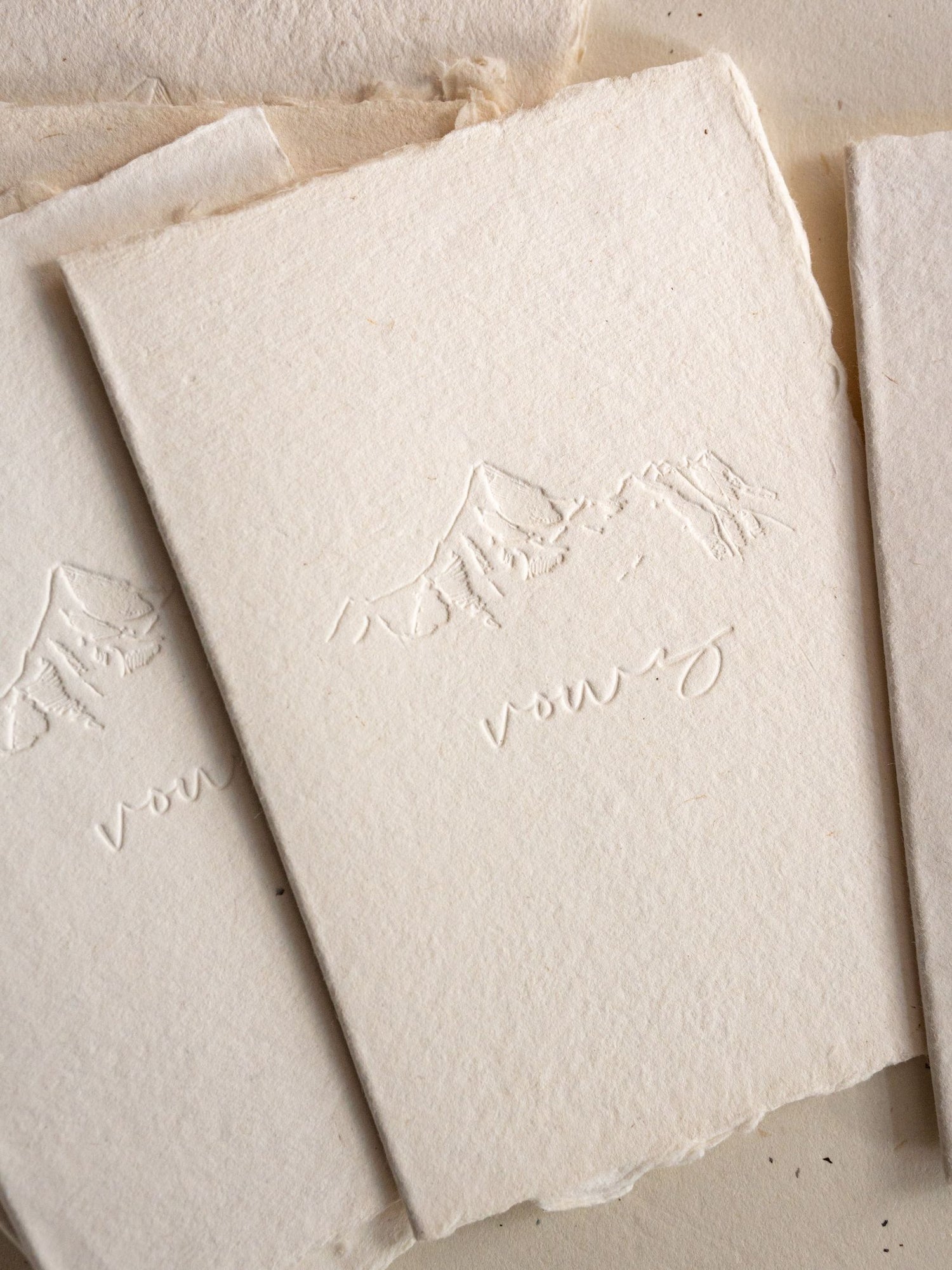
Debossing
A technique that creates a recessed design on the surface of the paper by applying pressure. The indented effect adds a unique tactile element, creating a subtle yet distinctive appearance that enhances the material's texture and visual interest.
